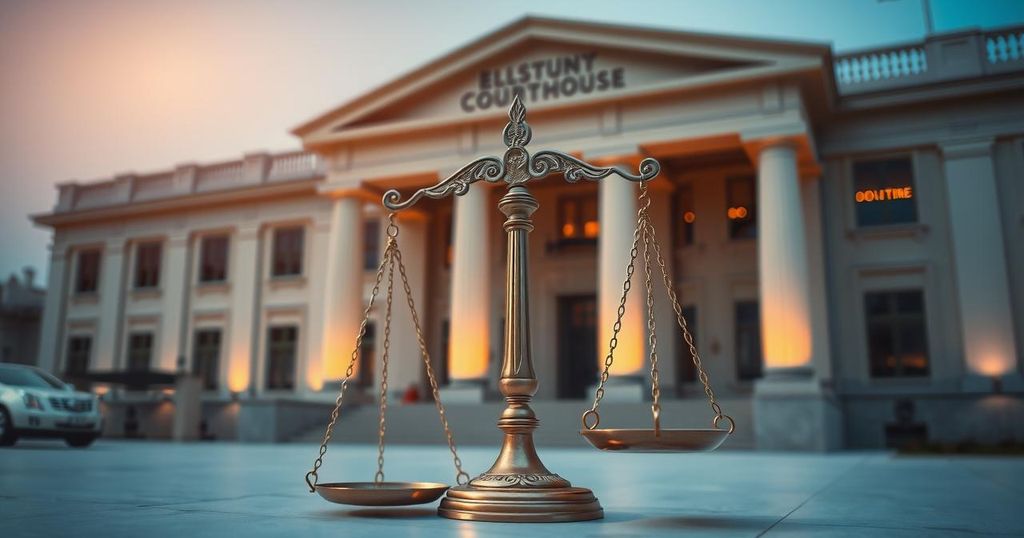The establishment of the Hybrid Court for South Sudan faces significant delays despite the 2018 Revitalized Peace Agreement advocating for it. Legal, procedural, and financial challenges have contributed to this stasis, as highlighted by government and AU officials. The successful implementation of complementary transitional justice mechanisms is crucial before the formation of the Hybrid Court. As stakeholders continue discussions, advocating for accountability remains essential.
The establishment of the Hybrid Court for South Sudan (HCSS), mandated by the 2018 Revitalized Peace Agreement, remains stalled, despite rising calls for justice from victims of conflict. This AU-led court aims to investigate and prosecute individuals responsible for serious crimes committed since December 15, 2013, including the killing of civilians and sexual violence. The decision for this court was originally part of the 2015 peace agreement and reiterated in the revitalized framework in September 2018.
Government and AU representatives cite various challenges, including legal, procedural, and financial obstacles, for the delay in the court’s formation. Michael Makuei, South Sudan’s Minister of Information, stresses that the AU has not provided the necessary legal framework for the court’s establishment. He stated, “It is taking long because the formation of the Hybrid Court is not in our hands.
Prof. Joram Mukama Biswaro, AU envoy to South Sudan, noted that the HCSS is part of a broader transitional justice framework, which also includes the Commission for Truth, Reconciliation, and Healing (CTRH) and the Compensation and Reparation Authority (CPRA). He highlighted the interdependence of these mechanisms, emphasizing the need to prioritize establishing the CTRH and CPRA before focusing on the Hybrid Court.
Despite the acknowledgment of significant progress made by the South Sudanese government and the AU in transitional justice, challenges persist. Prof. Biswaro pointed out that financial constraints hinder progress, stating, “This is a process. It has huge financial implications.” He emphasized the importance of implementing the peace agreement comprehensively, as the slow progress affects critical areas such as security and constitutional reforms.
Considering the multiple demands for justice, Prof. Biswaro expressed the need for patience among conflict victims. He remarked, “There is a legal dictum that justice delayed is justice denied,” while also acknowledging historical instances where delayed justice was ultimately served. Potential alternative justice mechanisms, like those employed in Rwanda, could provide complementary avenues for redress.
While the AU has not set a specific timeline for the court’s establishment, it remains committed to the issue. Makuei reaffirmed the government’s dedication to transitional justice, urging that South Sudan should implement the peace agreement at its own pace. Biswaro called upon various stakeholders to continue advocating for accountability as discussions with South Sudanese authorities proceed.
James Bidal, Coordinator of the South Sudan Human Rights Defenders Network, articulated the distress caused by the ongoing delay. He asserted the importance of justice, not merely as punishment, but as a means of acknowledgment and healing for the victims, stating that inaction has fostered a culture of impunity. He also critiqued the sluggish progress of both the Hybrid Court and CPRA, emphasizing that victims have been left without essential redress.
The Hybrid Court for South Sudan was designed as a critical response mechanism under the 2018 Revitalized Peace Agreement to address past grievances and foster accountability following years of conflict. Initially proposed in the 2015 peace accord, its establishment has been met with numerous challenges, drawing attention to the need for a functioning judicial framework in the nation. Given the complex interplay of transitional justice mechanisms, the court’s establishment is vital for restoring trust and ensuring meaningful reconciliation within the affected communities.
The Hybrid Court for South Sudan’s establishment is crucial for addressing the legacy of conflict and fostering accountability. Delays, attributed to legal and financial hurdles, continue to hinder justice for victims. With ongoing advocacy for accountability, it is imperative that all stakeholders, including the South Sudanese government and the AU, work collaboratively to overcome these challenges and fulfill the promises of transitional justice as outlined in the peace agreements.
Original Source: www.radiotamazuj.org






